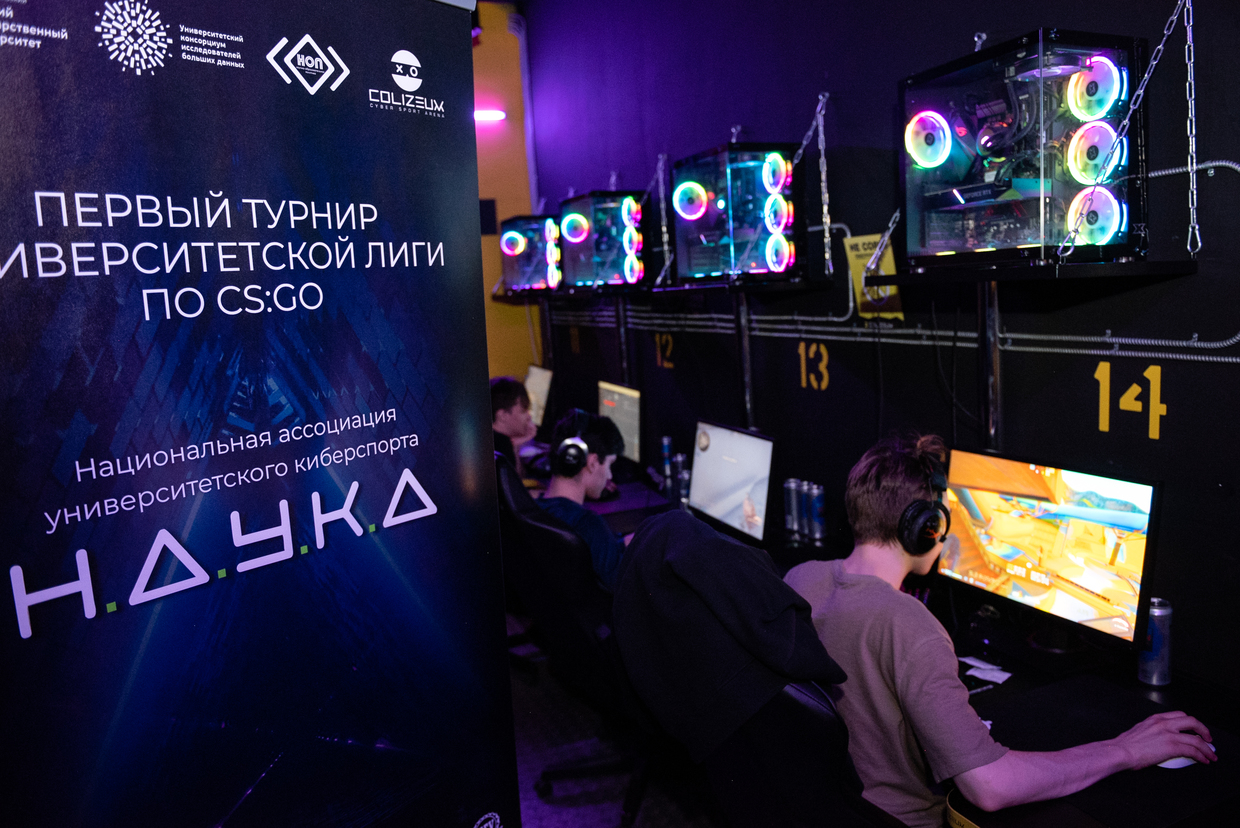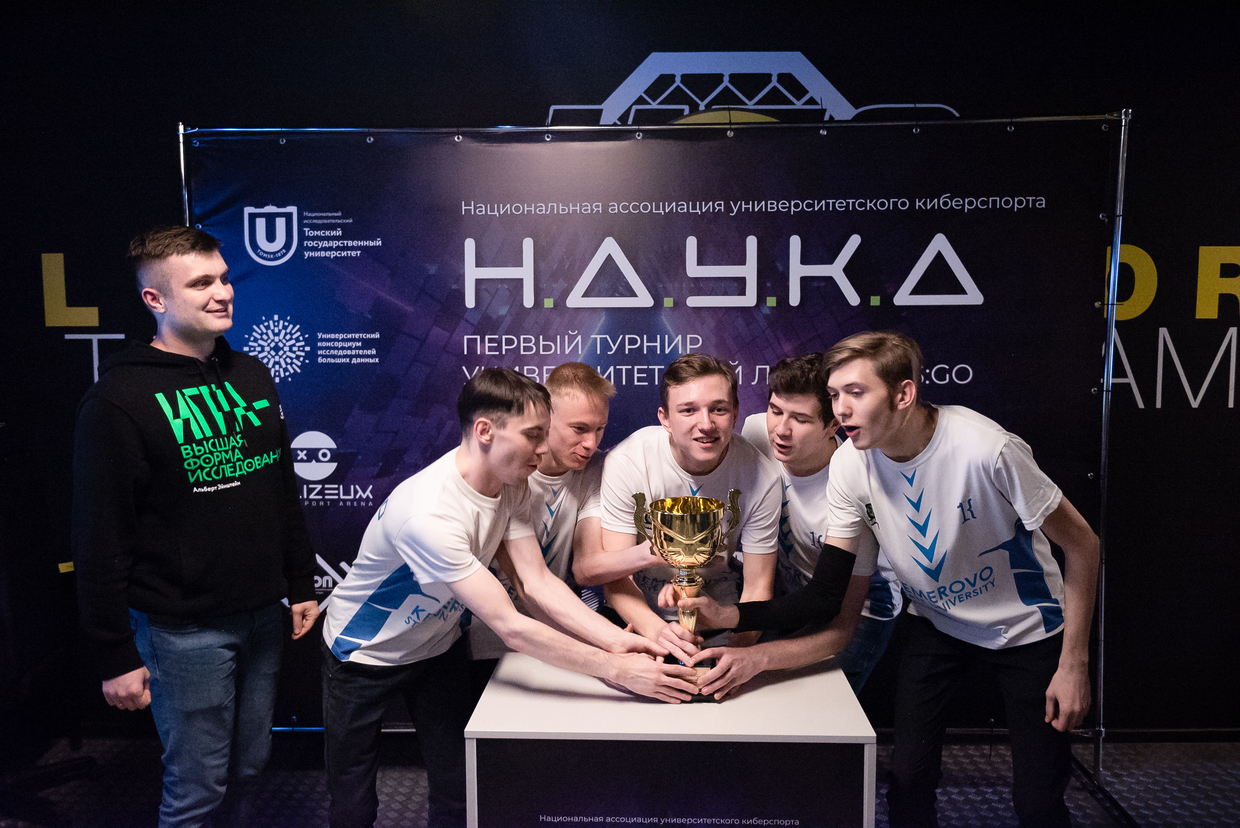
Esports is gaining popularity in Russian universities, with the authorities fully supporting the trend. They say the virtual discipline is attracting more students and contributing to the learning process.
On December 15, the winners of Russia’s first international student esports tournament were announced. “Battle for Science” participants from six countries competed in Dota 2 and League of Legends video games for the prize of two million rubles ($27,000). The winning teams were both Russian – from Tambov State University and Moscow Aviation Institute.
The Battle for Science was organized by the Ministry of Science and Higher Education, together with Moscow’s Esports Federation, as well as Synergy University and GIG.ME. In 2023, the country is planning to host a major international esports competition called “Games of the Future.” Russian gamers Team Spirit have been invited to be ambassadors. In October, the team won the International 10 (the esports world championship for Dota 2.) The organizers are promising to unite sport, technology, innovation and education in the upcoming event.
Esports plus learning
In Russia, the development of esports among students is now seen as a priority trend. Actually, video games and the education process have been mixing for years, and the approach called ‘gamification’ has been applied in universities all across the world. Specialists from the Russian Technological University MIREA, recognized as the country’s best esports university in 2019, have noted that interaction processes help students to get better involved in learning.
MIREA is taking part in the ‘Priority 2030’ academic leadership program – a major state initiative for universities launched in 2021 – which aims to boost education and research programs. The program also wants the country’s higher-education centers to become more attractive for foreign students and scientists. Priority 2030 was launched during the summer and, after several months, more than 100 Russian universities were chosen to participate. Each will receive at least 100 million rubles ($1.4 million) annually under the scheme. Dozens of participants also applied for special grants for up to one billion rubles ($13.6 million) annually.
MIREA has opened its own esports competitions center. According to the head of the university’s student sport club, Alexey Menshin, the discipline attracts a lot of potential students. “Esports creates more common fields of activity, it helps to improve communication in certain ways,” he says.
Russia’s Ministry of Science and Higher Education is promising to keep supporting the activity. According to Minister Valery Falkov, “Esports gives the will to win, develops dedication, diligence, perseverance and attentiveness, teaches to work in a team and assume responsibility – the things that lecturers are teaching in the universities.”
1st to recognize
Russia was the first country in the world to officially recognize esports back in 2001. However, there was no official union for it, so the discipline lost its title five years later – but was reinstated again in 2016.
Russia’s esports teams are performing very well in the international arena, and an increasing number of foreign students wish to study in the country as a result, professor at the University of Oregon and Russia’s Tomsk State University Mikhail Myagkov told RT. “Esports in universities create a very interesting mechanism for students’ intellectual, cognitive and information potential,” he explains.
This year, Tomsk State University proposed to create the National Association of Universities’ Esports N.A.U.K.A. (‘Science’), which has already been joined by more than 20 higher-education centers. Esports research is Tomsk University’s priority strategy, which it is developing as a participant in the Priority 2030 academic leadership program.

“We are researchers, and for us, esports is more than just a game,” Vyacheslav Goyko, head of the university’s big data analysis center and N.A.U.K.A. coordinator, told RT. “We want to discover how video games are developing people’s minds. We want to understand how to develop people’s cognitive functions with the games.”
Reality is already split in two – an ‘offline’ one and a virtual one, he says. And while some people are skeptical about esports, when you watch the teams competing, it creates a psychological tension similar to traditional sports championships, Goyko points out. Games of the Future will become the Olympics for esports, while Battle for Science is like the Russian Championship, he explains. “Universities become a place of preparation for sportsmen of the future,” Goyko says. This month, N.A.U.K.A. launched its first CS:GO (Counter-Strike: Global Offensive) competition, which attracted 217 teams from 110 Russian universities.

Esports is also encouraging students to become more interested in the issue of cybersecurity. For example, Novosibirsk State Technical University – another Priority 2030 participant – is developing a project called “Cybersecure Devices and Technology for Electric Power Systems.” It aims to provide 100% protection for Russia’s power system using domestic technology and software.




